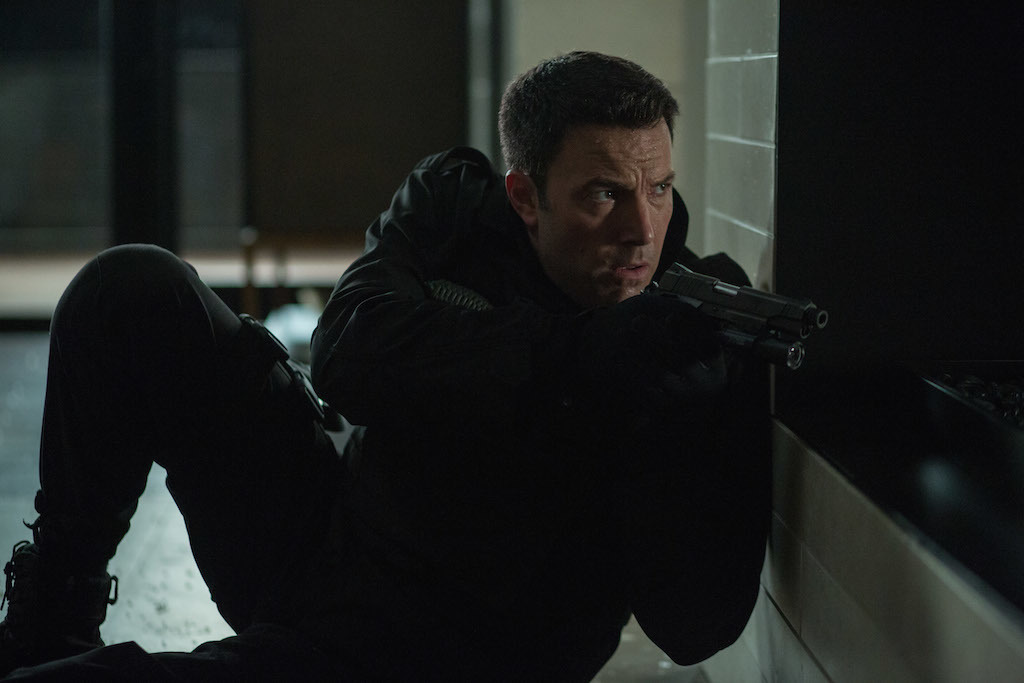
What a curious movie The Accountant is. It takes the mythology of the lone assassin—a strong silent type who only kills bad guys—and says, “But what if he was strong and silent because he was. . . autistic?” Alrighty then.
I can’t help but to feel that there’s something exploitative about this premise, and I’m particularly put off by the fact that Ben Affleck’s Christian Wolff—who, as a child, flaps his arms when distressed and throws frenzied tantrums—becomes a functioning adult thanks to the tough love provided by his military dad. There’s a tiny intimation that we have coddled our autistic children too much—if we just made them fight for their lives (literally, in this case) they’d toughen up and be ready for the real world. I don’t know about you, but I find that premise a bit offensive.
As Christian—now a math genius, marksman, and hand-to-hand combat expert who analyzes the books for shady international characters—Affleck is a mixed bag. Sometimes he plays him with an appropriately affectless and reticent quality. Other times, he can’t resist letting loose a bit of his Affleck charm. Can’t say I totally blame him. The actor’s got a lot of heavy lifting to do here—play an autistic man who is also a cartoonishly skilled badass who is also responsible for reciting large chunks of the plot.
Anna Kendrick brings her patented spunky “cool-girl” charm to the role of Dana Cummings, the fellow accountant who catches Christian’s eye. And J.K. Simmons does his gruff everyman thing as the Treasury Agent on Wolff’s tail. (Cynthia Addai-Robinson plays his protégée with a troubled past.)
The film has some interesting details—an Airstream where Christian keeps not just his arsenal, but the fruits of his labor, including a Renoir and a Pollock; and an ongoing (but affectionate) riff where Christian, who can’t quite read emotions, struggles to assess the mood of his companions (“You’re angry,” he’ll say, finally getting it.)
By the end, it’s clear the film wants to be a franchise—a kind of John Wick-meets-James Bond with an autistic lead (Christian even has his own version of M). It’s a weird concept that is nonetheless bizarrely watchable. It also makes you reassess other strong, silent types of movies past. Was Gary Cooper playing autistic this whole time?
